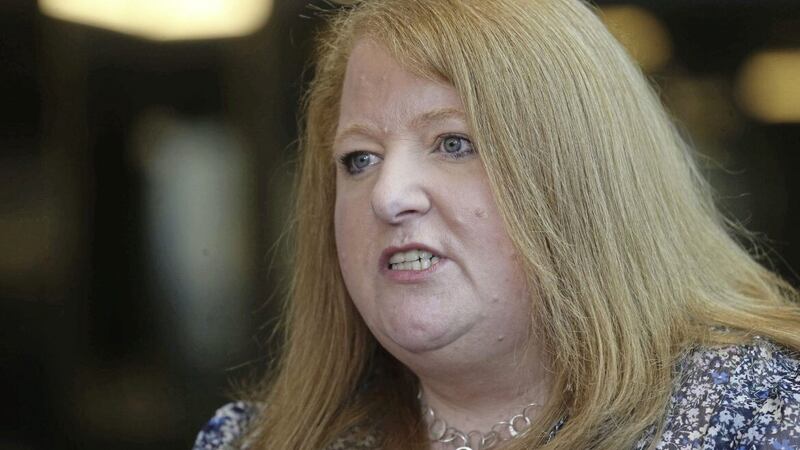The past week’s debate about direct rule versus joint authority has been so absurd it must be asked how much of it was sincere.
We are years away from even direct rule, as journalist Sam McBride has pointed out. The last collapse of Stormont showed London will leave us on civil service autopilot indefinitely, only intervening at nationalism’s behest.
The Good Friday Agreement already gives Dublin a strong consultative role, plus the power to make proposals on non-devolved issues - more ‘joint authority’ than proponents of joint authority seem to know or care about.
Literal joint authority, with any degree of executive control from Dublin, would require tearing up the Good Friday Agreement, designing an unprecedented form of international governance and getting consent to implement it.
The past week’s theatrics all followed a mere observation by Alliance leader Naomi Long that collapsing Stormont could mean more Dublin input via the agreement. What Alliance is actually proposing - and what would really scare the DUP - is reform of mandatory coalition, something the whole of unionism demanded for two decades, right up until the assembly election this year.
**
As well as confusion over the Good Friday Agreement, there appears to be confusion over parliamentary democracy. Alliance and the SDLP have questioned the validity of new prime mister Rishi Sunak’s appointment. SDLP leader Colum Eastwood called it “completely illegitimate and an affront to democracy... with no mandate whatsoever”.
In reality, it was Liz Truss’s appointment that was questionable. She was chosen by the unelected party membership, while Mr Sunak was chosen solely by MPs, which is what is supposed to happen. Changing leaders repeatedly mid-term may feel odd but it is far worse to indulge the notion that a prime minister has a separate, personal, quasi-presidential mandate, superior to that of parliament - a lesson the tenure of Boris Johnson ought to have made clear.
**
A jaw-dropping report into the Belfast Trust by the Royal College of Surgeons has been obtained by the Belfast Telegraph. It was requested by the Trust in 2020 following problems with its surgical services and inadequacies with its own investigation. The report found the working environment to be “dysfunctional, horrible, hostile, and toxic”, with “issues of concern regarding clinical leadership... allowed to continue unchecked for a number of years” and minutes of management meetings “altered after the fact”.
Sections of the report on conflicts of interest, waiting list initiatives and private practice were redacted.
It appears the culture of secrecy extends upwards to the Department of Health. Last year, the department conducted a public consultation on a statutory “duty of candour and being open” - the main recommendation of the hyponatraemia inquiry into the deaths of five children in Northern Ireland’s hospitals. However, the department is refusing to publish the responses, as is standard practice. So much for candour and openness.
**
Secretary of state Chris Heaton-Harris and Northern Ireland Office junior minister Steve Baker have been left in post by Rishi Sunak. This sends two somewhat conflicting signals. It is a vote of confidence in their assertive approach to the protocol and the restoration of Stormont. But it is also a cheap way to pay off the European Research Group of Tory Brexiteers - both men are former ERG chairs. The Northern Ireland Office has no role in protocol negotiations.
There were rumours last weekend Julian Smith might return as secretary of state. He is a Sunak ally and helped rescue Stormont from its last collapse.
Reappointment was never likely and became even less so after an unusually pointed comment by defence secretary Ben Wallace.
“Rishi has to jettison some of the people around him who have been engaged in the dark arts and destabilising the government, such as Gavin Williamson and Julian Smith,” he told the Sunday Times. “MPs do not want to see them rewarded.”
Williamson has returned to cabinet but Smith was left on the backbenches.
**
Responding to a Sinn Féin question in the Dáil, Taoiseach Micheál Martin said the Irish government is keen to help fund a resumption of the Derry to Dublin air-route.
This has caused some grumbling from the Greens about the environmental impact. There might appear to be wider problems with subsidising a 120-mile overland hop. But the arrival of small electric airliners, already in production around the world, will transform the viability and sustainability of such routes. Denmark and Sweden will make all internal flights zero-emission by 2030 and other European countries are setting similar targets.
The real transport fantasy is pretending tens of billions will be spent on a high-speed railway between Derry and Dublin - the current policy of ministers north and south.
**
SDLP councillor Carl Whyte has warned it could be “months or years” before pedestrian safety measures are installed around Belfast’s new Ulster University campus.
“Department for Infrastructure officials are still scratching their heads about how to deal with traffic in the area,” he told the Irish News.
The councillor’s tact must be commended. Department for Infrastructure officials certainly can scratch part of their anatomy for years while doing nothing for pedestrians, but it is rarely their head.









